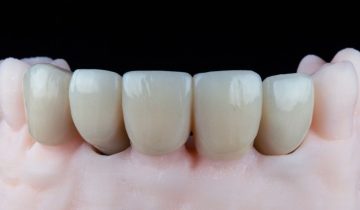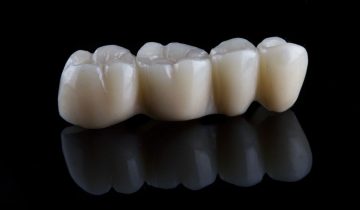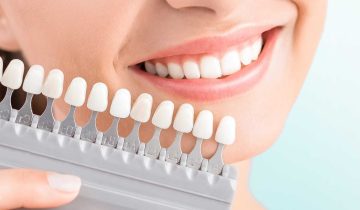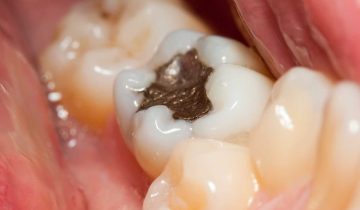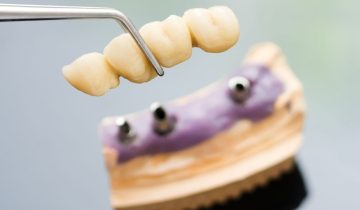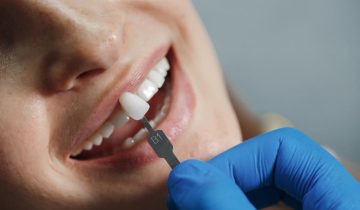Last updated on May 17th, 2023
Dental crowns are an effective solution for damaged teeth. Crowns can cover, restore, and protect your teeth. Also, crowns are a more substantial treatment technique than regular fillings. Crowns are made of various materials such as porcelain, ceramic, or metals.
Many patients particularly demand porcelain crowns as they can perfectly mimic their tooth’s natural color. As they get more popular, more and more people are looking for answers to the questions in their minds. In this article, we aim to give you a decent amount of information about crowns, and porcelain crowns in particular. Enjoy!
What Is A Dental Crown?
A dental crown is a small cap that dentists place on the top of a damaged tooth. There might be various reasons for the damage to your teeth. For example, injuries, tooth decay, or grinding at night can result in serious damages to your teeth, and the problem might go beyond the capacity of a simple filling could solve.
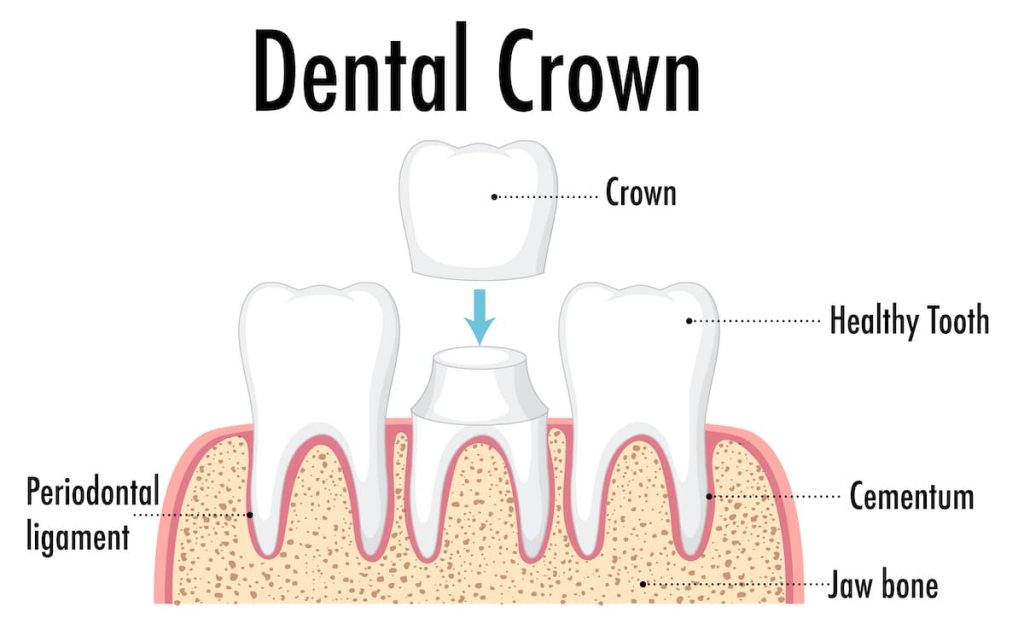
At this point, dental crowns are of great importance. They restore the original tooth shape and enhance the size and strength of the tooth. At the end of the procedure, your teeth look much better aesthetically, and you can make the most of your tooth functionally.
Why Would I Need A Dental Crown?
Dental crowns might be just what you need to use your damaged tooth effectively. There are various reasons for you to consider getting dental crowns.
Decayed Or Decaying Tooth
Though a dental filling can cure minor decays, more serious decays need a higher level of treatment like dental crowns. Crowns can stop the decaying tooth from further cracks or breaks.
Severely Worn-Down Tooth
Especially due to the grinding and clenching, some patients might lose a significant length of their teeth. Usually, it happens a lot to one tooth in particular, and it gets shorter. Dental crowns are a perfect solution to this problem.
Supporting Other Dental Treatments
Aside from being a smart solution to damaged teeth, dental crowns are used as a subordinating technique along with other treatments such as dental bridges, dental implants, and root canals.
What Are The Different Types Of Crowns?
Although this article is mainly about porcelain crowns, it is still good for you to know about other crown types. There are different kinds of dental crowns that professionals use in dentistry. Depending on the material, cost, or procedures involved, patients choose one of the following crown types.
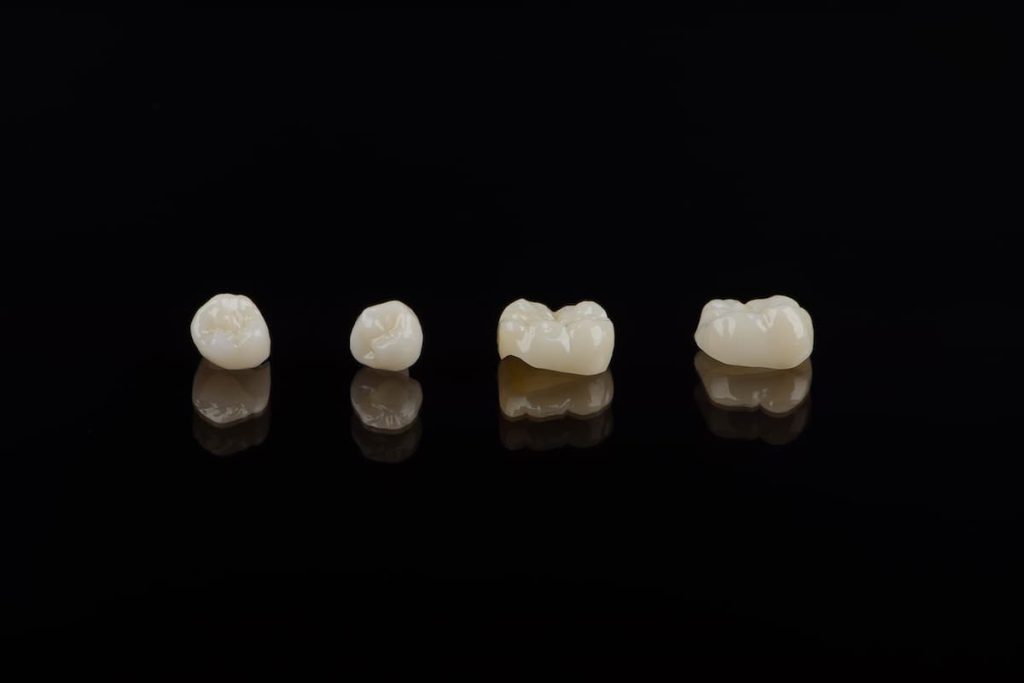
All Porcelain Crowns
The full porcelain crown is probably the most popular crown type used in the clinics since porcelain can perfectly mimic the natural tooth color. Also, they are toxic-free as they don’t contain heavy metals.
However, they are usually more expensive than other options, and they need very good care since they are not as durable as the metal ones.
All-Ceramic Crowns
All-ceramic crowns (porcelain jacket crowns) also involve a certain amount of porcelain in their composition. They are similar to all-porcelain crowns in many ways. They are reputable for offering the best natural look that can mimic your existing teeth.
Gold Crowns
Gold crowns are made of copper and other metals. Though some might involve real gold, the karat value is usually lower. They are highly resistant and durable. You can use gold crowns for your back teeth if not for the front teeth.
Porcelain Fused To Metal Crowns (Porcelain Bonded Crown)
Porcelain fused metal crown is another common dental crown type. Sometimes they are called metal porcelain crowns, too. The inner side is made of metal, and the outer side is made of porcelain. They are outstanding with durability and aesthetic beauty.
Moreover, they cost less than porcelain crowns. However, at the bottom of the crown, you can still see a metal line circling the crown, which might spoil the aesthetic look for some people. Also, since the inner side is metal, the outer side is more prone to wear down if you have a clenching problem.
Zirconia Crowns
Zirconia crowns (zirconium crowns) are reputable for blending the aesthetic of porcelain and the strength of the metal. Actually, many patients can’t make a clear choice between porcelain crowns vs zirconia as zirconia is gaining popularity.
You can find high translucent and layered zirconia in many clinics these days. They are non-allergic, unlike some metal alloys, and highly durable. However, a zirconia crown can make the opposite tooth wear down. Therefore, you should watch the appearance and performance of your teeth carefully, and take action accordingly.
What Are The Advantages Of Porcelain Crowns
As stated above, porcelain crowns are the leading type of crowns due to some advantages. To give you an idea, we can say that porcelain crowns;

- Look exactly the same as your natural teeth
- Contain no metal and thus they are non-allergic
- Don’t cause sensitivity
- Can be easily aligned and corrected
Are Porcelain Crowns Good?
Yes, porcelain crowns are good according to patients’ feedbacks. Considering the exceptional aesthetic beauty and significant performance, a porcelain crown is a good alternative if you are seeking a solution for your damaged tooth.
How Much Is A Porcelain Crown
The porcelain crown cost is hard to know before seeing your specific problem. The price might vary depending on how severe the damage to your teeth is. Also, prices vary depending on the size and shape of the crown to be used on your tooth.
However, how much to pay for a porcelain crown is not secret. You can simply get a free quote from different clinics by sending the visuals of your damaged tooth.
What Is Porcelain Crown Treatment Procedure Like?
Typically, you should have two visits to get porcelain crown treatment. During the first visit, the impressions of your damaged tooth are taken, and the damage is observed in detail. If you have severe damage, the tooth fractures are removed along with the outer layer of the tooth. Then, your dentist places a temporary crown on the tooth.
Usually, two weeks later, you are supposed to go for the second meeting. At this meeting, your temporary crowns are replaced with your custom-made permanent crowns.
By the way, there are same-day-crown options at some clinics, Depending on your case, you can ask for a faster alternative. It will definitely save you a great deal of time.
How Long Do Porcelain Crowns Last?
Generally, porcelain crowns are supposed to last for around 10 years. However, other problems in your mouth, your oral hygiene, how you take care of your teeth, or regular dental check-ups can greatly affect the overall service life of a porcelain dental crown.
Do Porcelain Crowns Ruin Your Teeth?
As long as you get the porcelain crown treatment from an experienced professional using proper materials and tools, porcelain crowns are pretty safe for you. However, you should still consider that before placing your porcelain crowns, the dentist grinds away the tooth surface, which might create extra sensitivity to hot or cold drinks.
How Do You Take Care Of A Crowned Tooth?
Once you get a crown, the next concern will be, probably, how to take care of your crown? If you want to keep your healthy teeth last longer, you should pay great attention to your oral hygiene. Regular brushing and flossing are even more important now. Also, visit your dentist regularly so that you can prevent any problem with your crown as well as other problems such as decays or gum disease.
Bottom Line
Dentistry is continuously seeking new alternatives to solve dental problems. Dental crowns are one of the focus points of the sector since they provide patients with absolute benefits if they have damaged teeth or teeth.
There are a number of dental crowns, and porcelain tooth crown is one of the most popular ones. In this article, we have tried to answer some common questions that you might be wondering about porcelain crowns.
However, just reading the articles here and there is never enough to make a decision on a certain dental treatment. You should see your dentist and discuss potential problems and solutions elaborately.

